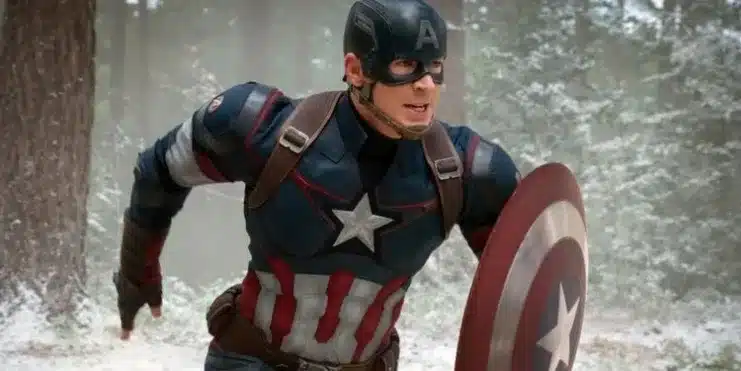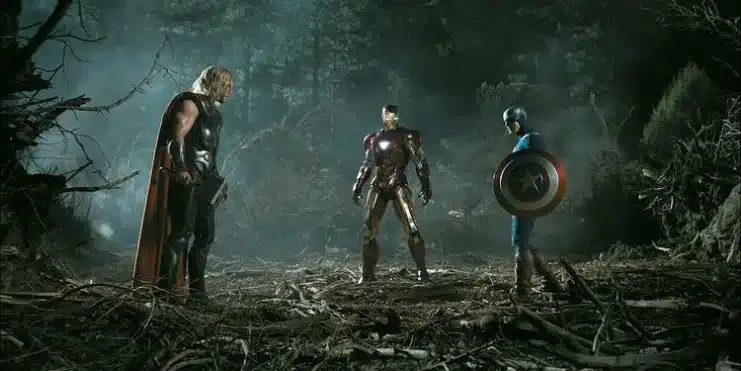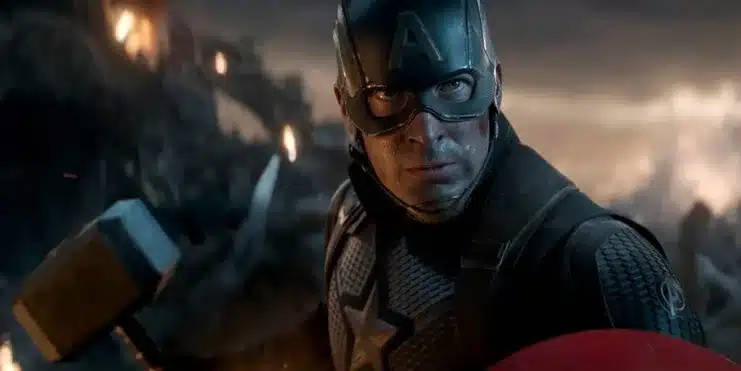
We review Captain America’s path in the Infinity Saga.
Avengers: Endgame is the story of Captain America’s unwavering heroism and fearless leadership in the history of the Marvel Cinematic Universe (MCU). With his involvement in the Avengers films, this character, played by Chris Evans, is more than just a superhero. He has become the heart and moral leader of the Avengers.

The beginning of the legend
Steve Rogers’ cinematic journey begins with his awakening in the modern era, a necessary prelude to his appearance in “The Avengers.” Arriving at the film is not just an act of presence; It is a demonstration of fighting strategy and leadership. His ability to organize the newly formed Avengers and lead the Rebels during the Battle of New York proves his worth as a leader, even though he doesn’t have the powers of Thor or the Hulk. Not only was this film a box office success, it also established the fundamental dynamic between Captain America and Iron Man.
Captain America’s presence in “Avengers: Age of Ultron” is hardly noticeable. Although he is a leader on the battlefield, his role is overshadowed by plots focused on other characters. This film, although less successful than the previous one, is crucial to the development of the MCU, which sets the standard for future installments.
Internal conflict
“Civil War” is more than an “Age of Ultron” sequel; It’s a key piece of the ideological conflict in The Avengers. Steve’s stance on the Sokovia Accords and his confrontation with Iron Man show a conflict of ideas that goes beyond a simple physical altercation. This film not only elevates the MCU, but also explores the complexity of Steve Rogers’ character.


“Avengers: Infinity War” stands out for showing Captain America as a true leader. Separated from Iron Man, his character shines in his own light, leading the way to protect Earth from the threat of Thanos. This film depicts his transformation from a soldier to a world leader.
The end of an era
“Endgame” not only marks the end of the Infinity Saga, but also the Captain’s career in the MCU. His role as a social worker and later as the leader of a time travel mission shows his versatility and commitment. His final battle with Thanos and his use of Mjolnir are iconic moments that define his legacy.
Throughout the Avengers movies, Cap has gone from being a leader on the battlefield to being a symbol of hope and resistance. His happy ending with Peggy Carter contrasts with Iron Man’s sad farewell, providing an emotionally satisfying closure to his journey.
The journey of the superhero
Cape’s cultural influence goes beyond his role in movies. It has become a symbol of honesty and courage in agreement with the international audience. Comparatively, other MCU characters like Iron Man provide a technological and practical counterpoint to his idealism. However, what sets him apart is Steve Rogers’ humanity and unwavering sense of morality. His decisions, especially in the “civil war”, reflect his commitment to his principles, even in the face of problems and disagreements with his allies.


From his beginnings as a soldier in World War II to becoming a modern leader, his story is one of adaptation and perseverance. This narrative arc delves into the psyche of a hero who, despite his superpowers, faces moral and emotional dilemmas that make him deeply human and relatable.
Cap’s presence in the Avengers films is a story of growth and leadership. From his first appearance to his farewell, he proved to be more than just a hero: a leader, a friend, and above all, an icon representing humanity. His legacy continues to inspire both characters in the MCU and fans around the world.